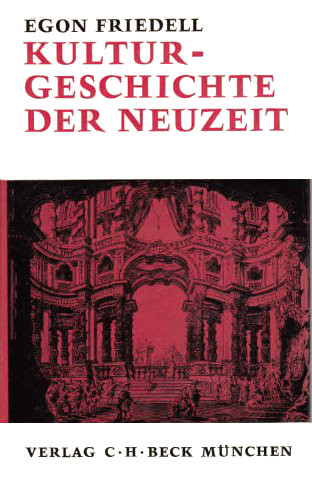IRWIN (ed.): State in Time (2014)
Filed under book | Tags: · aesthetics, appropriation, art, art theory, contemporary art, politics, retro-avant-garde, theory, utopia

“The NSK State in Time emerged in 1992, evolving in the context of the dissolution of Yugoslavia and the transformation Neue Slowenische Kunst. Existing both as an artwork and a social formation, a state that encompasses all time but holding no territory, the NSK State in Time has for two decades pushed the boundaries of artistic and political practice. This volume collects together, for the first time, analyses of the NSK State in Time including its relationship with the changing context of Eastern Europe, the connection between aesthetics and the state, the rise of NSK folk art, and documents the First NSK Citizen’s Congress in 2010.”
Includes essays by Inke Arns, Huang Chien-Hung, Eda Čufer, Marina Gržinić, Irwin, Tomaz Mastnak, Viktor Misiano, Alexei Monroe, Ian Parker, Avi Pitchon, Stevphen Shukaitis, Slavoj Žižek, and Jonah Westerman.
Publisher Minor Compositions, Wivenhoe / New York / Port Watson, 2014
Open Access
ISBN 9781570272769
178 pages
Julia Vaingurt: Wonderlands of the Avant-Garde: Technology and the Arts in Russia of the 1920s (2013)
Filed under book | Tags: · 1920s, aesthetics, architecture, art, art history, avant-garde, biomechanics, body, cinema, communism, constructivism, design, literature, machine, politics, russia, science fiction, sexuality, socialism, soviet union, technē, technology, theatre

“In postrevolutionary Russia, as the Soviet government was initiating a program of rapid industrialization, avant-garde artists declared their intent to serve the nascent state and to transform life in accordance with their aesthetic designs. In spite of their professed utilitarianism, however, most avant-gardists created works that can hardly be regarded as practical instruments of societal transformation. Exploring this paradox, Vaingurt claims that the artists’ investment of technology with aesthetics prevented their creations from being fully conscripted into the arsenal of political hegemony. The purposes of avant-garde technologies, she contends, are contemplative rather than constructive. Looking at Meyerhold’s theater, Tatlin’s and Khlebnikov’s architectural designs, Mayakovsky’s writings, and other works from the period, Vaingurt offers an innovative reading of an exceptionally complex moment in the formation of Soviet culture.”
Publisher Northwestern University Press, 2013
SRLT series
ISBN 0810128942, 9780810128941
322 pages
via Sorin
Review: Boris Dralyuk (NEP, 2013), Tim Harte (Slavic Review, 2014).
PDF (updated on 2022-11-12)
See also the science-fiction film Aelita, Queen of Mars, dir. Yakov Protazanov, 1924, 111 min, based on Tolstoy’s novel.
Comments (2)Egon Friedell: A Cultural History of the Modern Age (1927–) [DE, EN]
Filed under book | Tags: · aesthetics, art history, cultural history, history, modernity, politics, religion

Austrian essayist, cabaret performer, and amateur cultural historian Egon Friedell is best known for his brilliant, playful, and stimulating magnum opus, A Cultural History of the Modern Age (1927-31), written under the influence of Oswald Spengler and Jacob Burckhardt. He hoped for a rebirth of Western culture; the Modern Age, which was born from the Great Plague of the fourteenth century, has come to its end. At the eve of World War II, Friedell committed suicide by jumping from a window of his apartment. The German writer Thomas Mann ranked Friedell as one of the greatest stylists of the German language.
A Cultural History of the Modern Age, inspired by H.G. Well’s The Outline of History (1920), is dedicated to Max Reinhardt. Its first volume deals with Renaissance and Reformation, the second Baroque, Enlightenment and the French Revolution, and the third part Romanticism, Liberalism, Imperialism, and Impressionism. Friedell’s view is subjective and intuitive – all history is saga and myth and it is nothing more than a difference in degree between historian and poet. “All the classifications man has ever devised are arbitrary, artificial, and false,” Friedell wrote, “but simple reflection also shows that such classifications are useful, indispensable, and above all unavoidable since they accord with an innate aspect of our thinking.” Following the Hegelian lines of though, Friedell sees his subject basically as a the process of spiritual history. Oswald Spengler’s (The Decline of the West, 1918-1922) pessimism and atheism he rejects. From the English writer, historian, and critic Thomas Carlyle (1795-1881) Friedell adopted the romantic “great man” theory of history, the hero-worship, totally ignoring its ominous connection with the political reality of his day. Every era and every generation has according to Friedell its own hero, a genius, who personifies the Zeitgeist, the spirit of the age. Nietzsche was for Friedell the epitome of the pre-WW I era. (from Petri Liukkonen’s short biography of Friedell)
German edition
Publisher Beck, Munich, 1927, 1928, 1931
This edition, Zweitausendeins, Frankfurt am Main, 2009, 1335 pages
English edition
Translated by Charles Francis Atkinson
With an Introductory Essay by Alfred Polgar
Publisher Alfred A. Knopf, 1930, 1931, 1932
Fifth printing, 1953 (Vol 1); Third printing, 1954 (Vol 2); First printing, 1932 (Vol 3)
353 + 457 + 489 pages
via hz40lat46
Review (of Vol 1, Crane Brinton, Speculum, 1953)
Review (of Vols 1-2, International Journal of Ethics, 1932)
Review (of Vol 2, Eli Siegel, Scribner’s Magazine, 1931)
Review (of Vol 3, Robert Briffault, Scribner’s Magazine, 1932)
Review (of Vol 1, C. Hartley Grattan, The Forum, 1930)
Review (of Vol 1, David Owen, The Saturday Review, 1930)
Review (of Vol 2, The Saturday Review, 1932)
Review (of Vol 3, Alfred M. Frankfurter, The Bookman, 1932)
Wikipedia (DE)
Kulturgeschichte der Neuzeit; Kulturgeschichte Ägyptens (German, 1927-31/2009, at Archive.org)
A Cultural History of the Modern Age, Volume I, Volume II, Volume III (English, trans. Charles Francis Atkinson, 1930-32, no OCR)

